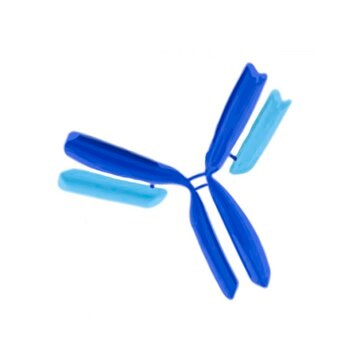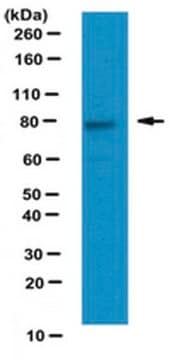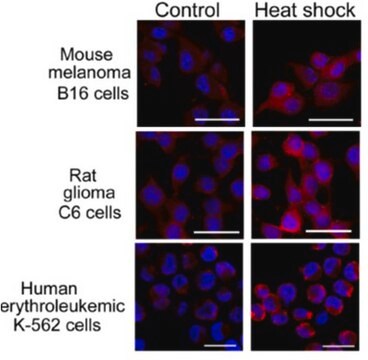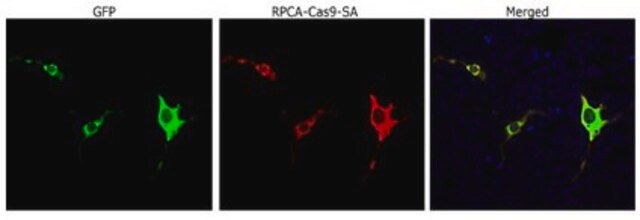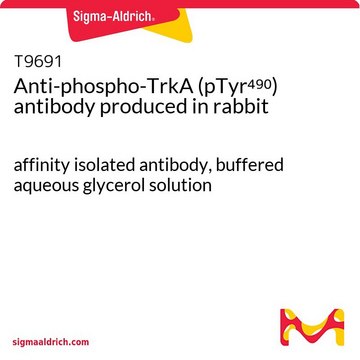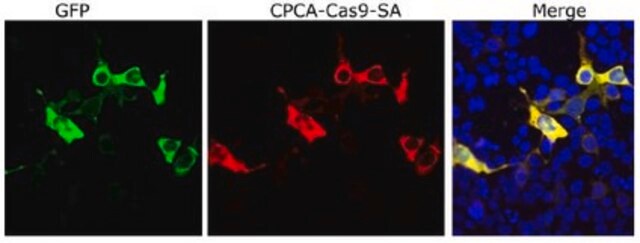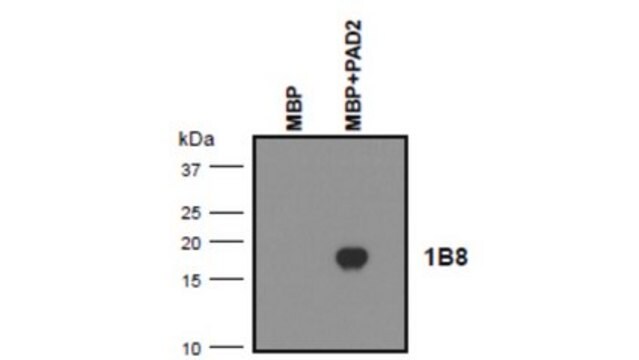MAB8691
Anti-Hepatitis C Virus Antibody, helicase domain NS3
Chemicon®, from mouse
Sinonimo/i:
HCV
About This Item
Prodotti consigliati
Origine biologica
mouse
Livello qualitativo
Forma dell’anticorpo
purified antibody
Tipo di anticorpo
primary antibodies
Clone
monoclonal
Reattività contro le specie
human
Produttore/marchio commerciale
Chemicon®
tecniche
ELISA: suitable
immunofluorescence: suitable
immunohistochemistry: suitable (paraffin)
western blot: suitable
Condizioni di spedizione
wet ice
Specificità
Immunogeno
Applicazioni
Immunohistochemistry (Parrafin embedded)
Immunofluorescence
Immunoblot
Final dilutions must be determined by end user
Infectious Diseases
Infectious Diseases - Viral
Stato fisico
Stoccaggio e stabilità
Note legali
Esclusione di responsabilità
Non trovi il prodotto giusto?
Prova il nostro Motore di ricerca dei prodotti.
Codice della classe di stoccaggio
12 - Non Combustible Liquids
Classe di pericolosità dell'acqua (WGK)
WGK 2
Punto d’infiammabilità (°F)
Not applicable
Punto d’infiammabilità (°C)
Not applicable
Certificati d'analisi (COA)
Cerca il Certificati d'analisi (COA) digitando il numero di lotto/batch corrispondente. I numeri di lotto o di batch sono stampati sull'etichetta dei prodotti dopo la parola ‘Lotto’ o ‘Batch’.
Possiedi già questo prodotto?
I documenti relativi ai prodotti acquistati recentemente sono disponibili nell’Archivio dei documenti.
Il team dei nostri ricercatori vanta grande esperienza in tutte le aree della ricerca quali Life Science, scienza dei materiali, sintesi chimica, cromatografia, discipline analitiche, ecc..
Contatta l'Assistenza Tecnica.